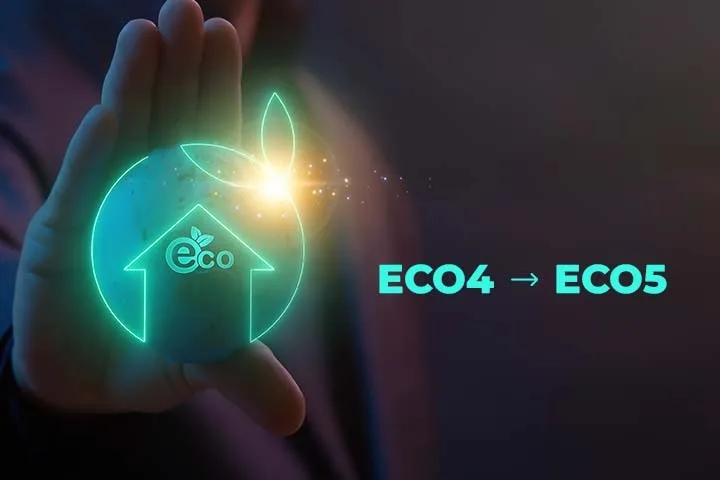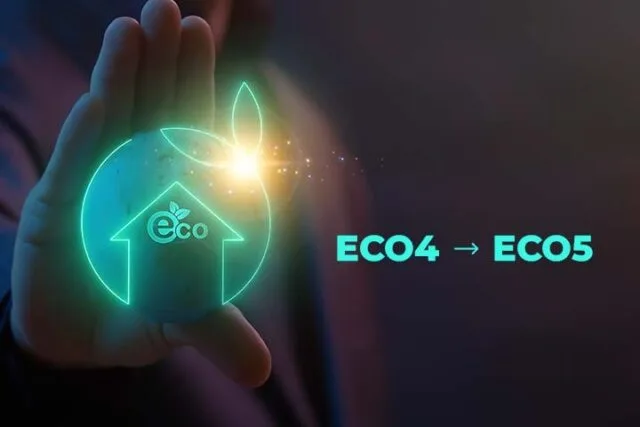As the UK pushes toward a greener future, questions arise: What happens after ECO4? Will there be an ECO5? These queries are buzzing in energy-conscious households and among property owners keen to improve energy efficiency.
While the UK government has not yet officially launched ECO5, experts and analysts predict it’s only a matter of time.
Let’s explore what might come next and how homeowners can start preparing today.
Understanding ECO4 and Its Objectives
The Energy Company Obligation Phase 4 (ECO4) scheme, which began in 2022, continues to help low-income and vulnerable households make energy-saving upgrades—such as new boilers, insulation, and smart heating systems.
With a strong emphasis on reducing fuel poverty and lowering carbon emissions, ECO4 runs until March 2026.
It has already assisted thousands of UK residents by:
- Installing A-rated boilers
- Providing solid wall and loft insulation
- Upgrading outdated heating systems
Why ECO5 Is on the Horizon
The UK’s legally binding commitment to reach net zero carbon emissions by 2050 makes the continuation of schemes like ECO4 a necessity.
With the climate crisis escalating, ECO5 seems inevitable—likely featuring more aggressive targets, expanded access, and broader technology inclusion.
In addition, the evolution from ECO1 to ECO4 shows a clear trend: expanding scope and improving energy performance in homes that need it most.
Predicted Features of ECO5
Expanded Eligibility Criteria
One of the most expected changes in ECO5 will be inclusion of moderate-income households, who are often overlooked yet still struggle with high energy bills. Priority might also shift toward:
- Rural households with outdated infrastructure
- Landlords who upgrade tenant properties
- First-time homeowners
Increased Support for Renewable Energy
ECO5 is likely to focus more on renewables, especially:
- Air source and ground source heat pumps
- Solar PV systems
- Battery storage units
This aligns with both UK energy strategy and public demand for low-carbon home improvements.
Smart Tech and Home Energy Management
Future-proofing homes means smart integration. ECO5 may fund:
- Energy usage tracking devices
- Smart thermostats and meters
- Remote control systems for heating efficiency
Potential Changes in Eligibility
Beyond financial thresholds, ECO5 might introduce new filters such as:
- Energy Performance Certificate (EPC) ratings
- Number of dependents in a household
- Disability or age-based criteria
These changes would align better with holistic assessments of household vulnerability.
ECO5 and the Net Zero 2050 Goal
The ECO scheme will remain pivotal to reaching Net Zero. ECO5 could contribute by:
- Reducing household carbon output
- Accelerating the phase-out of fossil fuel systems
- Encouraging energy literacy and behavior change
How to Prepare for ECO5 Today
Start With an Energy Audit
A home energy assessment can identify:
- Where your property is losing heat
- Which upgrades are most needed
- Eligibility potential for ECO grants
Partner With TrustMark Installers
Using certified professionals ensures:
- Compliance with upcoming ECO standards
- Faster processing when ECO5 launches
Organize Documentation
Keep the following ready:
- EPC certificate
- Proof of income or benefits
- Council tax statements
Lessons Learned From ECO4
ECO4’s strengths:
- Strong support for vulnerable families
- Focus on long-term energy savings
Limitations:
- Limited access for middle-income groups
- Complex paperwork and delays in rollout
These are all areas where ECO5 can improve significantly.
Government Funding Outlook
The UK government has already allocated billions through previous ECO phases. If ECO5 aligns with ongoing net zero investments, we can expect:
- £2-4 billion in funding
- Increased involvement of private sector installers and manufacturers
- More transparent funding structures
Timeline: When Will ECO5 Launch?
If trends continue, ECO5 may begin:
- April 2026, immediately after ECO4 ends
- Early consultations may occur by mid-2025
- Legislation drafts may be announced during budget sessions
How Landlords and Tenants Can Benefit
With private rentals a major focus of UK housing policy, ECO5 could:
- Offer grants to landlords to insulate rental properties
- Protect tenants from rising heating costs
- Introduce minimum energy standards for letting
Potential Challenges for ECO5
Some hurdles ECO5 may face:
- Budget shortfalls
- Shortage of skilled installers
- Resistance from landlords reluctant to invest
These challenges must be addressed proactively by policymakers.
FAQs About ECO5 and the Future of ECO Schemes
Is ECO5 confirmed by the UK government?
Not yet, but policy patterns suggest it will follow ECO4 by 2026.
What upgrades will ECO5 likely cover?
Renewable systems, insulation, smart tech, and heating upgrades.
Will ECO5 include more households?
Yes, broader eligibility is one of the most anticipated changes.
Can landlords apply for ECO5?
Likely yes, especially to meet new EPC standards and help vulnerable tenants.
How can I stay updated on ECO5?
Follow government websites and register interest with approved ECO4 installers.
Will ECO5 support solar panels?
Solar integration is highly probable in ECO5’s grant options.
Final Thoughts on ECO5 and the Future
While ECO5 hasn’t been formally announced, its arrival seems certain. With the UK’s carbon reduction goals and the continued success of ECO4, ECO5 promises to be more inclusive, smarter, and more impactful. Whether you’re a homeowner, landlord, or tenant, the time to prepare is now.




